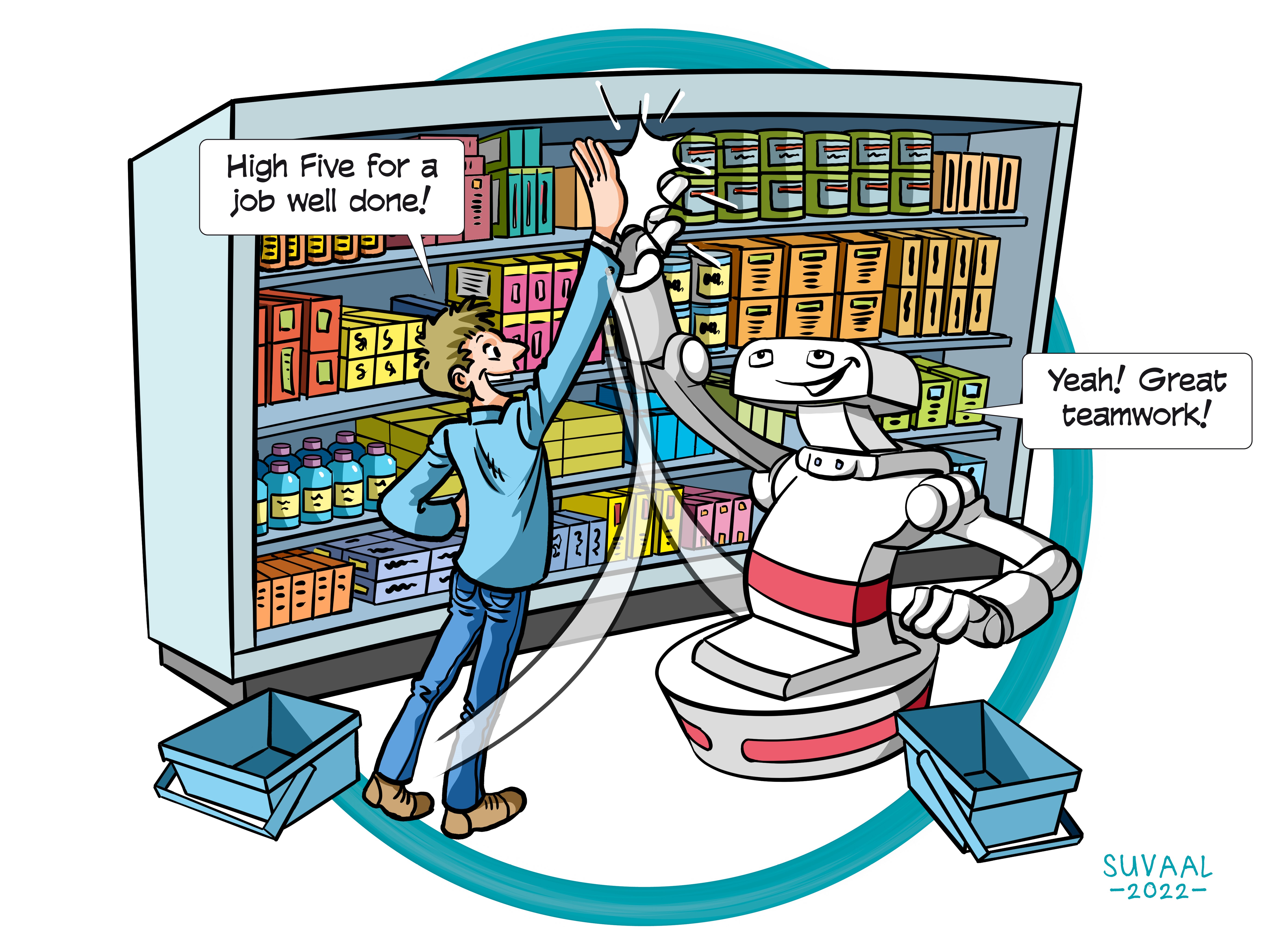AI for Retail (AIR) Lab Delft
Research Themes: Software Technology & Intellligent Systems, Robotics


A TRL is a measure to indicate the matureness of a developing technology. When an innovative idea is discovered it is often not directly suitable for application. Usually such novel idea is subjected to further experimentation, testing and prototyping before it can be implemented. The image below shows how to read TRL’s to categorise the innovative ideas.
Summary of the project
The “AI for Retail Lab” (AIRLab) is a collaboration between the retail company Ahold Delhaize and TU Delft. Located in RoboHouse, AIRLab boasts a mini-supermarket, several mobile robots that can pick and place products, and office space for the team of PhD students, Postdocs, and engineers. By using robotics and AI in real world situations like supermarkets, it can help better manage work and store processes and improve the overall customer shopping journey.
The team takes a multidisciplinary approach to solve one of the main challenges in the field of robotics; handling complexity and variability. Whereas robots are ubiquitous in structured factory environments, there are hardly any robots for the complex real world outside the factory confines. The supermarket serves as an ideal intermediate test environment; the shelves with products and the range of tasks is still quite structured, yet the presence of customers and employees provides some variation and complexity. It is remarkable how difficult it is for robots to perform seemingly simple tasks such as re-stocking the shelves, forcing the researchers to combine their expertise on robot learning, optimal planning, software architectures and even ethics and philosophy.
For example, the researchers are working on a novel path-planning algorithm for a 100-fold reduction in computation time, which allows the robots to plan and re-plan their motions safely around unpredictably moving customers. Other breakthroughs include a neuroscience-inspired decision making algorithm, a new paradigm for evaluating the societal and ethical implications of supermarket robots, and even novel algorithms for optimal grocery delivery routes. This last example highlights the valuable collaboration between the researchers providing the algorithms, and Ahold Delhaize providing unique and highly valuable real-world datasets.
What's next?
While the researchers continue to improve the robots’ variation handling capabilities with new algorithms, the engineers are working on demonstrations of longer and longer duration. Currently, the robot can successfully fulfill some individual tasks, such as picking or re-stocking a product in the front row of a shelf. The engineering challenge is to let the robot execute various (and more complex) tasks in a sequence, and eventually to remain autonomously operational for hours or even days. Meanwhile, more knowledge needs to be collected on the human-robot interactions in the supermarket. To enable more realistic and long-term experiments, a larger supermarket/lab environment is under construction.
With or Into AI?
Both
prof. dr. ir.
prof. dr. ir. Martijn Wisse
dr. Jens Kober
dr. Javier Alonso Mora
dr. Carlos Hernandez Corbato
prof. dr. Filipo Santoni de Sio
dr. Marco Rozendaal
prof. dr. ir.
Max Spahn
Maximillian Kronmüller
Corrado Pezzato
Madelaine Ley
Chadi Salmi
Jered Vroon
Karen Chiang
Faculties involved
- 3ME
- TPM
- IDE
